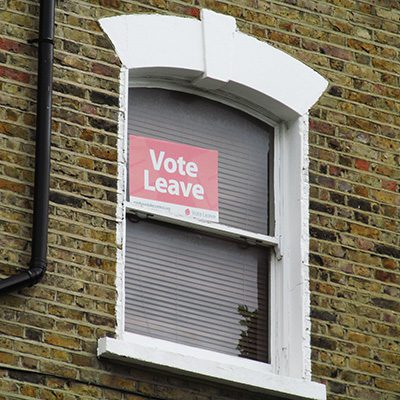 I can imagine that many shared my foreboding as the world approached the referendum known as Brexit. Now that we are hearing about and beginning to experience some of the fallout from this vote, many of the “Leave” voters are beginning to wonder if they have done the right thing. Should consensus decision making have been a part of the process?
I can imagine that many shared my foreboding as the world approached the referendum known as Brexit. Now that we are hearing about and beginning to experience some of the fallout from this vote, many of the “Leave” voters are beginning to wonder if they have done the right thing. Should consensus decision making have been a part of the process?
I am not going to suggest whether the UK came to the wrong or right answer, only time will provide sufficient insight to that. However, there is little doubt that they used entirely the wrong process. There is nothing more destructive in the realm of public deliberation than the easy “NO”. When stakeholders are allowed to reject a proposition or demand change without a full understanding of the issues, or an accounting of the potential ramifications, then they don’t have to take responsibility; they are simply making demands.
Consensus Decision Making and Good Process
Consensus decision making and good process works differently. The more complex and far-reaching the decision, the more complex and time-consuming the process will be. At its foundation, good process ensures that everyone has the full set of facts at their disposal in an understandable and accessible way. Then we create opportunities to discuss those facts and how they impact the many different people and interests that care about the decision. Groups are encouraged to explore the “what-ifs” and learn about different points of view. Ultimately, the best decisions are made when all factors and viewpoints are considered and long-term ramifications of choices are explored. These choices are balanced to find the complex solutions required to meet complex problems. Yes/no, leave/stay, and other binary choices invariably lead to argument and politicking, not good decisions.
Straight Out of England
Coincidentally, I was in England in the week leading up to the vote. It was the topic of conversation with everyone I met, from friends and relatives to cabbies and waiters. Everyone had an opinion. However, few demonstrated deep knowledge of the choice or its long-term ramifications for the UK. Votes to leave were strongly emotional, resulting from a decades-long mission creep of the EU from a common market of six similar nations (which did not include the UK) to 28 diverse member states under a complex and far-reaching governance structure. As borders became more porous, national identities became less pronounced, and control was ceded to far away places and politicians. These are complex, modern-day issues. The referendum turned them into curt slogans and wistful desires for days gone by (sound familiar?). It’s no way to run a government.
Author: Doug Sarno
